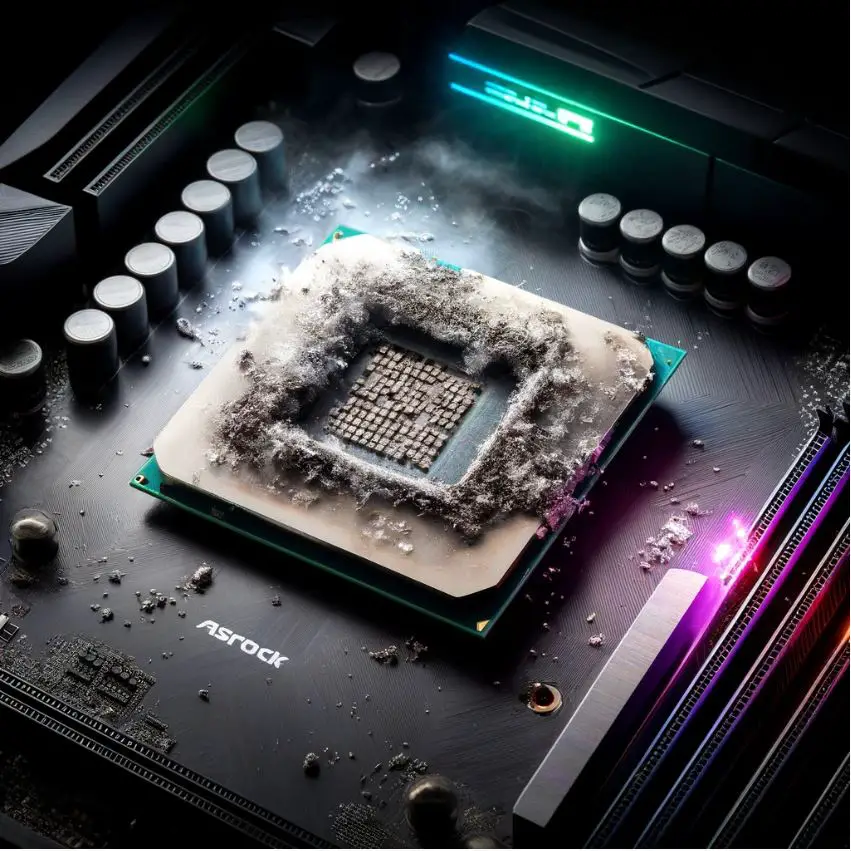
ASRock has come under fire after attributing a string of dead AMD Ryzen 9800X3D CPUs to unexpected socket debris contamination—a claim that has sparked a heated debate between hardware manufacturers and enthusiasts. The motherboard manufacturer’s statement points to an unusual accumulation of particulate matter in the CPU socket during the assembly process, which they allege has interfered with proper electrical connectivity, ultimately rendering the processors inoperable.
According to ASRock’s official communication, the issue was first identified after several customers reported experiencing sudden failures shortly after installing their new AMD Ryzen 9800X3D CPUs. Internal investigations revealed that minuscule particles, likely originating from manufacturing residue or environmental contaminants, had lodged themselves in the CPU socket. “Our quality assurance team discovered that even a tiny piece of debris can disrupt the delicate contact points required for optimal performance,” said an ASRock spokesperson. “While our production processes are designed to maintain the highest standards, this anomaly seems to have slipped through our quality control checks.”
The revelation has led to considerable concern among users who had high expectations for the performance promised by the AMD Ryzen 9800X3D line. Industry experts note that the integration of new chip technologies often involves tight tolerances and that even a slight deviation from the norm can have severe repercussions on system stability. “In modern computing, every connection is critical,” commented a well-known hardware analyst. “A single foreign particle can compromise thermal regulation and signal transmission, leading to catastrophic failure.”
AMD has yet to issue a formal response regarding the matter, but the situation has prompted discussions about the rigorousness of quality checks across both the CPU and motherboard production chains. Some users have already reported the inconvenience of having to replace or repair their hardware, and the incident has fueled speculation that additional scrutiny may soon be directed at the assembly lines of both companies.
The controversy has not only raised questions about the manufacturing processes but also about accountability within the tech industry. While ASRock appears committed to investigating and rectifying the issue, the broader implications for hardware reliability and consumer trust remain under close watch. Both companies are expected to collaborate on comprehensive testing procedures to ensure that future releases meet the expected performance benchmarks without unexpected interruptions from environmental factors.
As the dialogue continues, customers and experts alike await further updates on remediation efforts and potential recalls, while industry stakeholders debate how best to prevent such incidents from recurring in the future.
